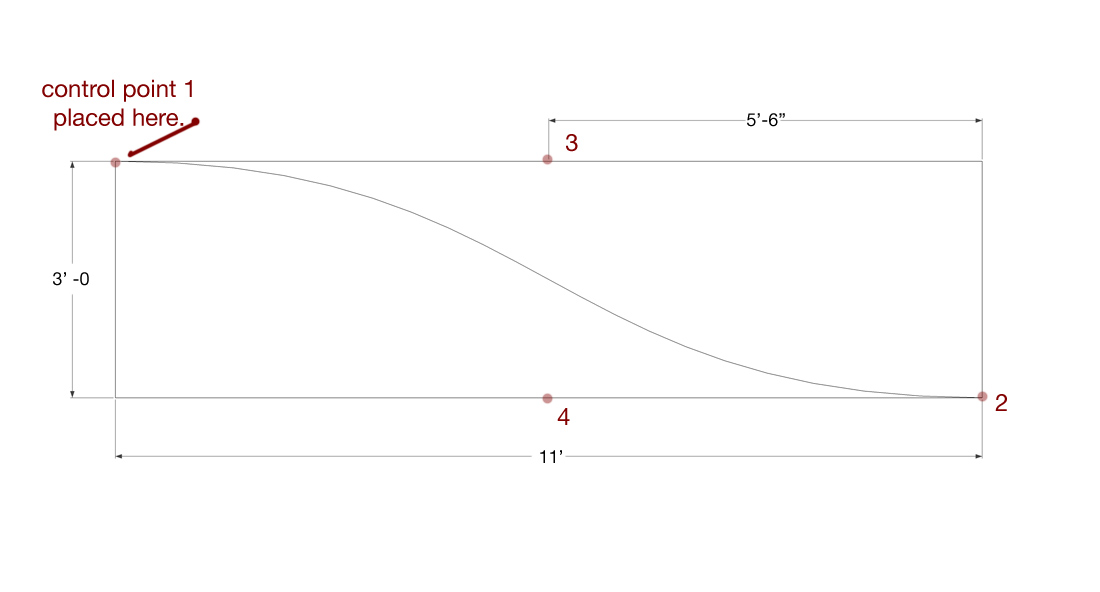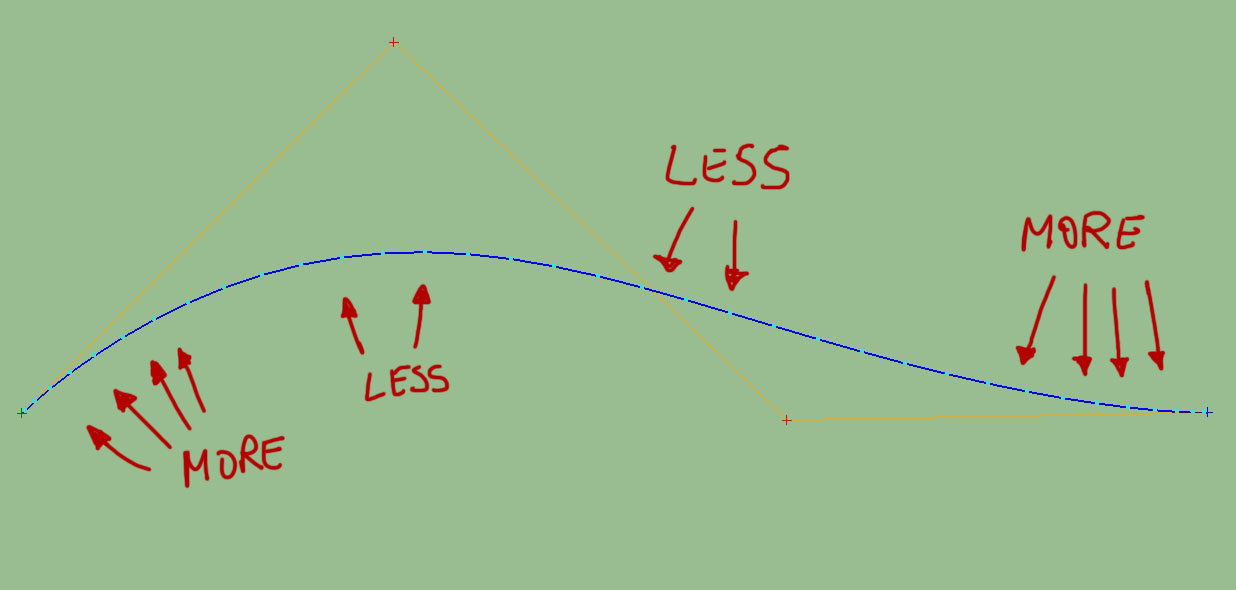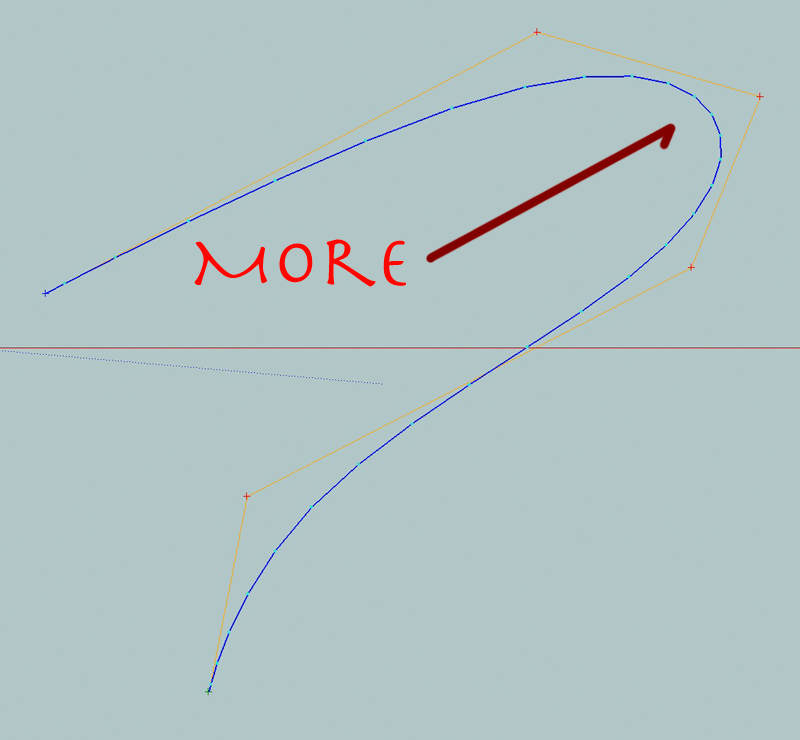[Plugin] BezierSpline - v2.2a - 22 Apr 21
-
Thabks Didier, just saw Fredo's post
-
UPGRADE BezierSpline 1.4 - 24 Aug 10
see main post for download.This release of 24 Aug 10is actually a small update to the version 1.4 of 16 Aug 10.
- Fix a bug for state of the toolbar on Mac
- added a menu to check for updates on Sketchucation
- Integrated updated icons by CadFather
BezierSpline 1.4 – 16 Aug 10 is an important upgrade and it is advised to install it:
- Several bugs fixed, among which some majors
- integration of all extensions
- Transformation of curves based on sharing control points (video in main post)
-
..Mercy!
-
i've been using this ruby more and more lately and i'm super relieved to be getting away from using radii for everything..
the main thing stuck in the back of my head and preventing me from learning even more about these types of curves is that i can't really figure out what's happening with them.. more to the point, i can't figure out a way to draw one full scale on-site without using plotted points and/or templates cut via CNC machines..
this example was drawn using Classic Bezier curve.. basically, i started off with the 3'x11' rectangle then placed the 4 control points shown with the red numbers..

does anyone know of any practical way to reproduce that line on a job site? or, any decent sources online where i can learn about these types of curves as they apply to a construction minded person (as opposed to a college minded person)
-
i haven't really found anything yet but here are a few visuals from wiki that are helping me wrap my head around what's going on..






[and i guess those example are different than the one in my post above this.. these are B-splines if i'm understanding the differences correctly]
-
These are regular Bezier curves (which are a particular case of BSplines).
Fredo
PS: on my long list of things to evolve is precisely a tool to draw splines with control of tangents.
-
Jeff, I've wondered about reproducing curves like that, too. Clearly a flexible batten would be useful but I wonder about setting points 3 and 4, then. Just some free thinking here. If you made the batten to the exact length of the curve and fastened the ends in place, could you push or pull the batten to the desired shape?
Another thought that would get you pretty close and may be more practical anyway is to do what boat builders do when lofting a boat. They identify points through which the curve passes at regular intervals along the length (stations in boat builders' terms) and offsets from a reference line (buttocks vertically or half-breadths horizontally since you only loft half a boat.) small nails are driven in at the points and a batten is sprung round the nails. Sight from low at one end of the batten to check to see if the curve is fair.
-
hi Dave,
yes, good ideas there. the one about cutting the batten to length and fastening the ends would probably be the best for me.. i could then plot 3-4 points throughout the curve and get it within a 1/4 or so (which is the greatest tolerance i'd be comfortable with).. still, it sounds a whole lot better than plotting 20-30 points along the line (which i've done in the past and it's not too much fun
 )
)with some of the more complex builds, i'll often use a curved template to hang other curved templates on in order to form the complex surfaces. (and on a few occassions, it's been 3-fold).. if the curve is the base curve then i want it to be pretty damn accurate or else the mistakes are going to multiply rather quickly throughout the build.
i'm also sort of warming up to the idea of using a large scale printer which i can basically draw all the lines on a huge sheet of paper that i'll need throughout the build.. i could then use some contact spray and put the lines directly on the material and cut that way..
have you ever tried anything like that?[edit] well then there's the case of sketchup being sketchup and not drawing exact curves.. as long as i draw with the vertices in the right place then i can build accurately from a .skp but in this case where i'm thinking about using an entire curved line, i'm basically back to the plotting idea and/or redrawing in rhino(which would sort of defeat the purpose of using sketchup)..
-
Jeff, if you have access to a large format printer, it would make sense to print full size patterns and use those. I've done that (with a normal printer) on numerous occasions and it works quite well. Don't dismiss plotting offsets though. You really don't need very many if you're going to spring a batten around them. Don't worry about the approximation of curves with straight line segments in SU. With BezierSpline you can set a larger number of segments. Whether you use a full size pattern of bend the batten, you can tell fairly easily if the curve is fair by sighting down it from one end.
We should probably take this to PMs or something and let Fredo have his thread back.

-
Stupid suggestion Here..... BUT -
could a projector work?
we used to blow up small images using a projector onto walls. then trace, paint etc. Its not the most accurate of methods but it is quick, your probably looking for precision. see, told you it was stupid.
Although, I like the image of you striding over the building site with school projector tucked under your arm! -
would be important to also be translated into Spanish
Please. Great tool!!!
-
Download link for 1.4 does not appear to be working? (for me, at least).
-
Mozzie, I just tried it and it downloaded for me just fine. What browser are you using?
-
First of all: Thanks A LOT Fredo, for your very handy plugin. Thanks to your plugin I was able to make things like this: http://forums.sketchucation.com/viewtopic.php?f=15&t=29881 Without your plugin this would be very difficult to make.
I would like to continue on something that has been discussed earlier:
@unknownuser said:
@plot-paris said:
I've got one question though, that I wanted to ask you for quite some time now:
when I transform a polyline (or now just a series of linesegments ) into a Polyline Arc Corners, sometimes the distribution of vertexes is a bit strange, showing some corner with very high polygon detail, leaving others almost unrounded... is there a way to influence that? like to tell the plugin to distribute the vertexes evenly per corner?
) into a Polyline Arc Corners, sometimes the distribution of vertexes is a bit strange, showing some corner with very high polygon detail, leaving others almost unrounded... is there a way to influence that? like to tell the plugin to distribute the vertexes evenly per corner?
[attachment=1:tyktxzq2]<!-- ia1 -->bz_round_corner-problem01.jpg<!-- ia1 -->[/attachment:tyktxzq2]The number of vertices for the rounding is based on the Precision parameter given on a Full Circle basis. So for Precision = 24s, you'll get 24 points for 360°. Depending on the arc angle of the rounding, you'll get less or more points.
Is that the explanation or do you see another issue or bug?Fredo
I think I experience the same thing (see attachement): There are more vertexes towards the end of the curve. The main problem with this for me is that I have to put in a lot of sides sometimes (like 60s) untill the big part with the least number of vertexes becomes smooth. Is there something you can do about this? Or is there just no other way?
Thanks in advance man!
Pieter

-
@pieterv said:
I think I experience the same thing (see attachement): There are more vertexes towards the end of the curve.
it's not that there are more vertices towards the ends, it's that there are more when the bend is a tighter curve..
here it's shown with the vertices closer together in the middle of the line.

-
very nice plugin thanks.
-
"Classic Bezier" - what does that refer to?
I was under the impression that Cubic Bezier was the most common one - so what is the classic? -
Oh wait - I'm getting confused... Is Cubic the Classic?
-
@thomthom said:
Oh wait - I'm getting confused... Is Cubic the Classic?
Classic Bezier is the true bezier curve, which does not pass thorugh the control points, except the first and the last ones. It is often referred to as simply "Bezier".
In contrast, Cubic Bezier is a spline passing through all control points. It is made of portions of Bezier curves for 3 consecutive points, with derivative continuity. There are other type of splines, but this one is quite fast to compute with direct formulas.
Fredo
-
Thank you, Fredo, for that clarification, and best that you did.
Advertisement







